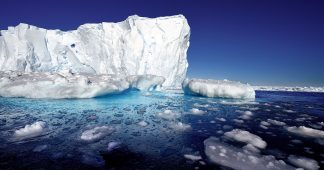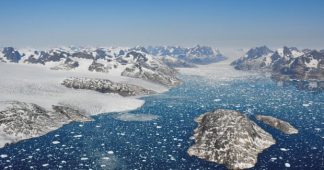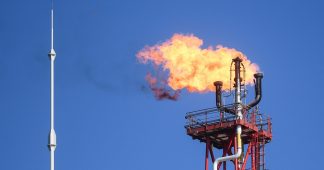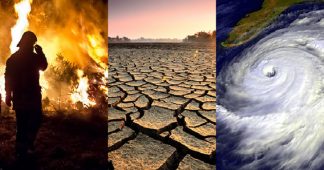Scientists increasingly concerned about thresholds beyond which recovery may become impossible
By Fiona Harvey
Climate scientists are increasingly concerned that global heating will trigger tipping points in Earth’s natural systems, which will lead to widespread and possibly irrevocable disaster, unless action is taken urgently.
The impacts are likely to be much closer than most people realise, a a draft report from the world’s leading climate scientists suggests, and will fundamentally reshape life in the coming decades even if greenhouse gas emissions are brought under some control.
The Intergovernmental Panel on Climate Change is preparing a landmark report to be published in stages this summer and next year. Most of the report will not be published in time for consideration by policymakers at Cop26, the UN climate talks taking place in November in Glasgow.
A draft of the IPCC report apparently from early this year was leaked to Agence France-Presse, which reported on its findings on Thursday. The draft warns of a series of thresholds beyond which recovery from climate breakdown may become impossible. It warns: “Life on Earth can recover from a drastic climate shift by evolving into new species and creating new ecosystems … humans cannot.”
Tipping points are triggered when temperatures reach a certain level, whereby one impact rapidly leads to a series of cascading events with vast repercussions. For instance, as rising temperatures lead to the melting of Arctic permafrost, the unfreezing soil releases methane, a powerful greenhouse gas that in turn causes more heating.
Other tipping points include the melting of polar ice sheets, which once under way may be almost impossible to reverse even if carbon emissions are rapidly reduced, and which would raise sea levels catastrophically over many decades, and the possibility of the Amazon rainforest switching suddenly to savannah, which scientists have said could come quickly and with relatively small temperature rises.
Continue reading at www.theguardian.com











